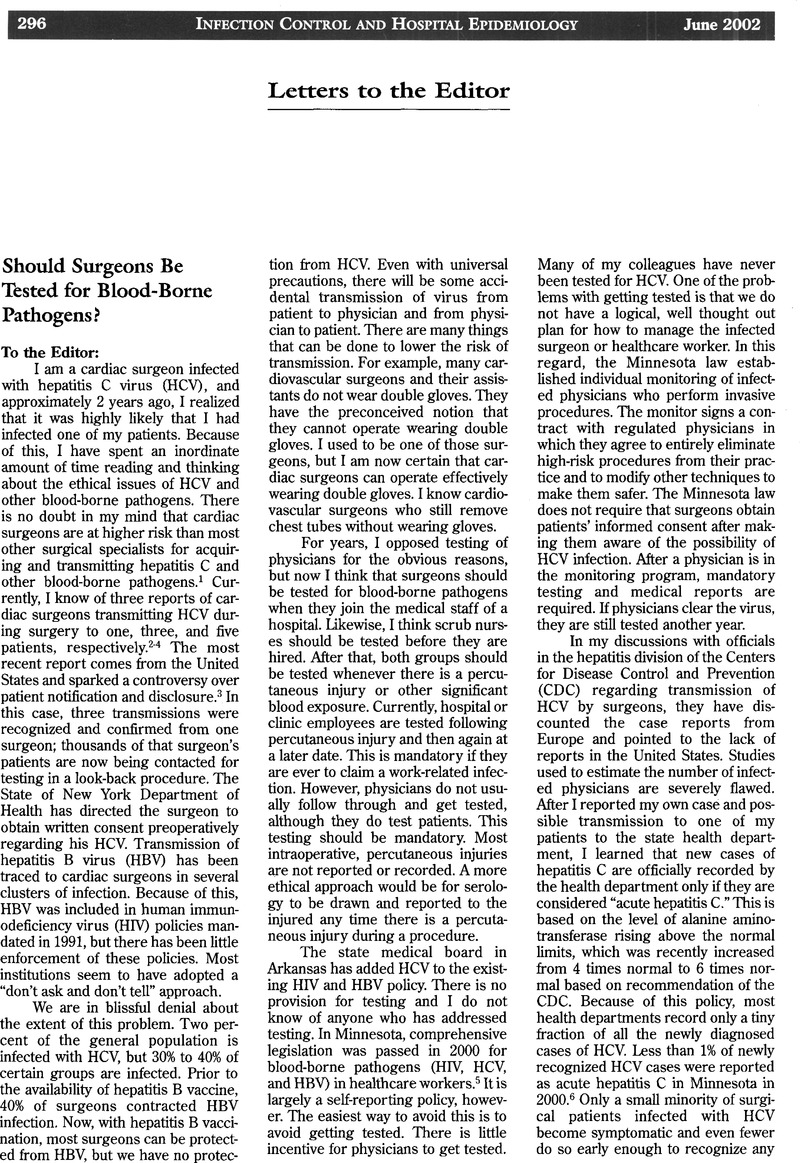Crossref Citations
This article has been cited by the following publications. This list is generated based on data provided by Crossref.
Stringer, Bernadette
2002.
Transmissions From Infected Healthcare Providers to Patients Are Medical Errors.
Infection Control & Hospital Epidemiology,
Vol. 23,
Issue. 11,
p.
638.





